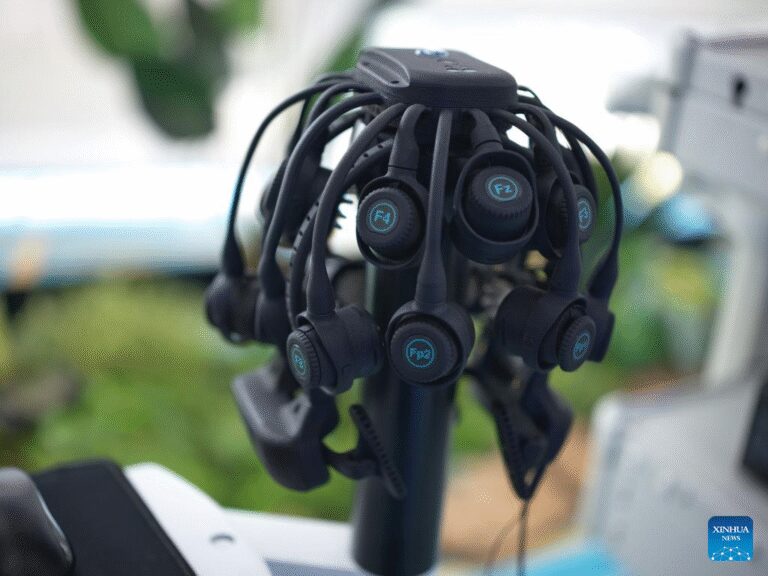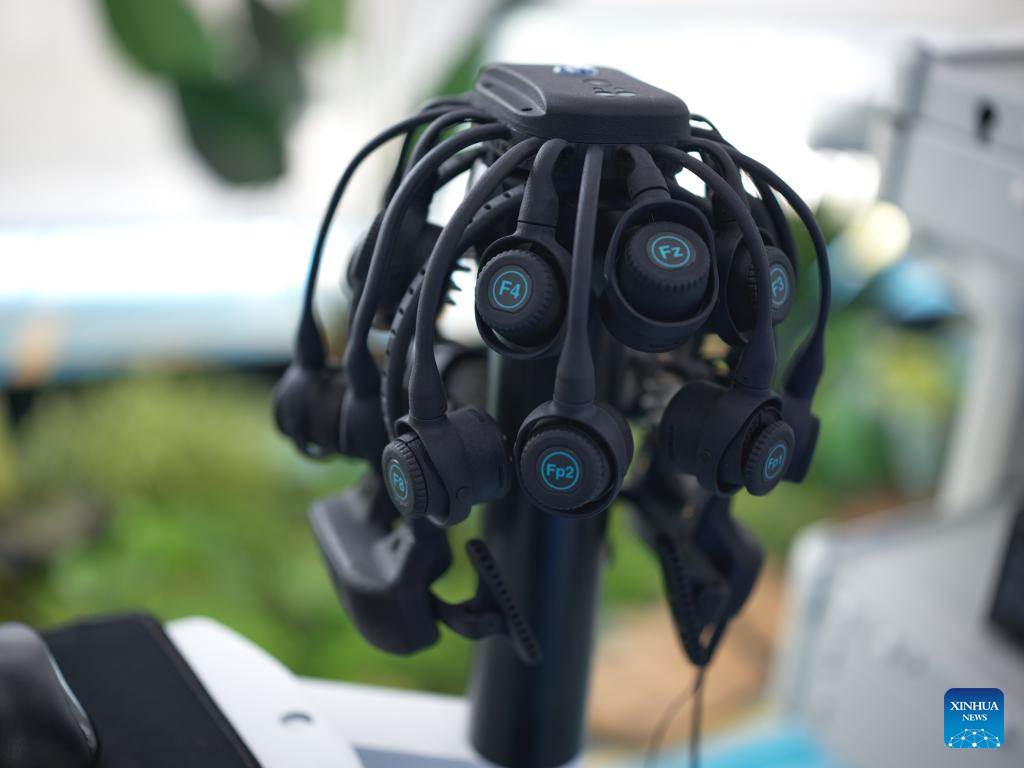
This photo taken on June 6, 2025 shows the therapeutic equipment developed by Chengdu Xinnao Technology Co., Ltd. in Chengdu, southwest China’s Sichuan Province. (Xinhua/Xue Chen)
by Yi Ling and Yu Li
CHENGDU, June 13 (Xinhua) — In a sunlit therapy room at Chengdu Xinnao Technology Co., Ltd. in southwest China’s Sichuan Province, a five-year-old boy surnamed Chen bursts into giggles as his favorite cartoon character waves back, a response triggered by brain signals decoded through his headset.
A moment that might seem ordinary for most children feels like a miracle to Chen’s family from Gansu Province, and a profound relief for Feng Rui, founder of the high-tech company dedicated to harnessing brain-computer interface (BCI) technology for autism intervention.
China’s 13 million people diagnosed with autism spectrum disorder (ASD), as reported by the China Disabled Persons’ Federation in 2023, face a harsh reality. Most receive little to no standardized therapy due to a shortage of specialists and the high cost of treatment.
Feng, a 45-year-old bioengineer turned entrepreneur, is determined to change this equation.
He likens the brain’s neural networks to a sprawling highway system. “In children with autism, some ‘routes’ are disconnected, others congested with excessive signals. This disrupts their ability to process social cues, language, and sensory inputs,” he explained.
These biological roadblocks, long obscured by the brain’s complexity, have confounded global efforts to address both early diagnosis and the development of effective, accessible treatment, Feng said.
Worldwide, about 80 million people with ASD live with a condition where traditional therapies often require years of costly behavioral training, with results that frequently diminish over time, Feng noted, adding that his team is working to address the root cause by targeting irregular neural pathways in the brain.
Co-developed with researchers from the Chengdu-based University of Electronic Science and Technology of China (UESTC), their approach focuses on identifying autism-specific biomarkers in neural activity through noninvasive, AI-driven analysis.
Key to this innovation is a diagnostic headset, the Quick-20r, equipped with 19 flexible electrodes that map brainwaves in real time.
“Unlike traditional wet EEG (electroencephalogram) systems requiring gel and clinical settings, our dry sensors capture neural ‘traffic patterns’ as children engage with tasks,” Feng said.
These signals feed into algorithms combining deep learning and neuroimaging to detect disrupted circuits linked to social communication.
The headset achieves 91.67 percent diagnostic accuracy without the discomfort of traditional conductive gels, Feng said. “For toddlers as young as two, this ease of use is critical.”
A Transcranial Magnetic Stimulation device, resembling an infinity symbol, uses AI to map abnormal neural circuits before delivering targeted magnetic pulses to recalibrate those pathways.
“Think of it as performing precision road repairs on faulty neural highways. In the end, it’s like tuning the brain to restore harmony in chaotic neural orchestras,” Feng said.
The toolkit has already served over 2,000 children worldwide.
“After treatment, we’ve observed significant changes in the amygdala structure on the right side of the children’s brains, with alterations in functional networks as well,” Feng added.
In addition to leveraging these technological devices, Feng’s team integrates traditional treatment methods to develop a complete solution.
Next to their instruments, the company has set up several therapy rooms where staff provide additional treatments using language, social interaction, and music for children with autism.
TECH WINS, LOVE CONQUERS
Recalling his career, Feng said the turning point came during a 2021 charity event for the International Day of Persons with Disabilities.
At that time, his team offered a free month-long treatment to 30 children with autism, with many showing significant improvements in social interaction and communication halfway through the treatment cycle.
However, the parents collectively voiced their concerns: “If there are no fees, what will happen to future treatments?” and “Will we be abandoned after this?”
“Their trust and concerns propelled us to industrialize the technology,” said Feng, who established his company in 2022 with government backing.
Feng underlined that Chengdu’s unique blend of academic resources — from UESTC’s engineering prowess to renowned West China Hospital of Sichuan University’s clinical expertise — has created fertile ground for BCI development.
Municipal support goes beyond funding, with local government actively linking innovators to healthcare institutions, while recent matchmaking events in Beijing have opened doors to national collaborations.
Recognized as a national outstanding case of technology-assisted disability support by the China Disabled Persons’ Federation, the BCI technology for autism intervention now operates in over 30 hospitals nationwide.
With treatments effective for 80 percent of patients, Feng aims to develop therapies for ADHD (attention deficit hyperactivity disorder) and depression next. At the same time, his devices are being shown alongside big tech companies’ products at innovation events in Chengdu, highlighting their importance beyond just healthcare.
“Brain-computer interfaces could change how smart cities and education work,” he said, stressing that for now, the main focus is on improving the autism treatment.
“We are also establishing the largest brain network database for age-appropriate children nationwide, which places us at the forefront in the industry,” he added.
Looking back on the years of work, Feng said this spring has been the most memorable, filled with good news from the children receiving treatment.
A Swedish boy who had shown little progress with European therapies spoke his first word, “Mama,” after completing a treatment cycle developed by Feng’s company. Another six-year-old Japanese boy moved from relying on sedation to sleeping naturally within weeks; meanwhile, a girl from Lanzhou in northwest China is now navigating friendships at elementary school, milestones that once seemed out of reach for children labeled “untreatable.”
“Every brain’s wiring is unique, but love and patience are always a way of connecting minds,” Feng said. Enditem
(Xinhua’s correspondents Li Qianwei and Xue Chen in Chengdu also contribute to the story.)
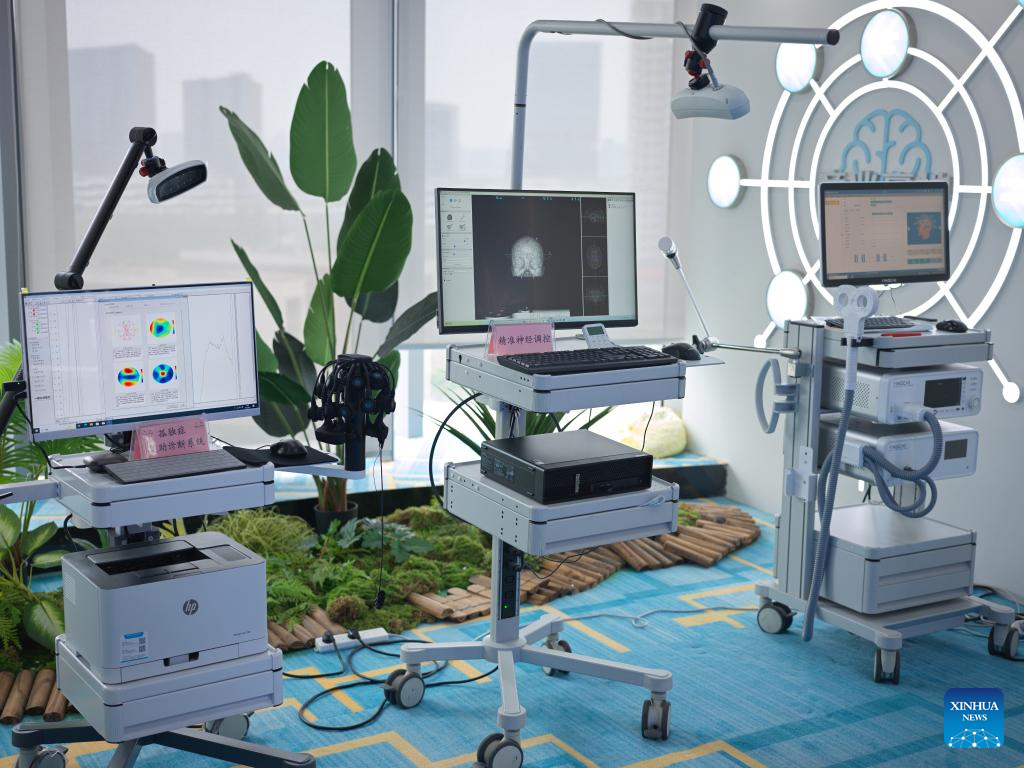
This photo taken on June 6, 2025 shows the therapeutic equipment developed by Chengdu Xinnao Technology Co., Ltd. in Chengdu, southwest China’s Sichuan Province. (Xinhua/Xue Chen)
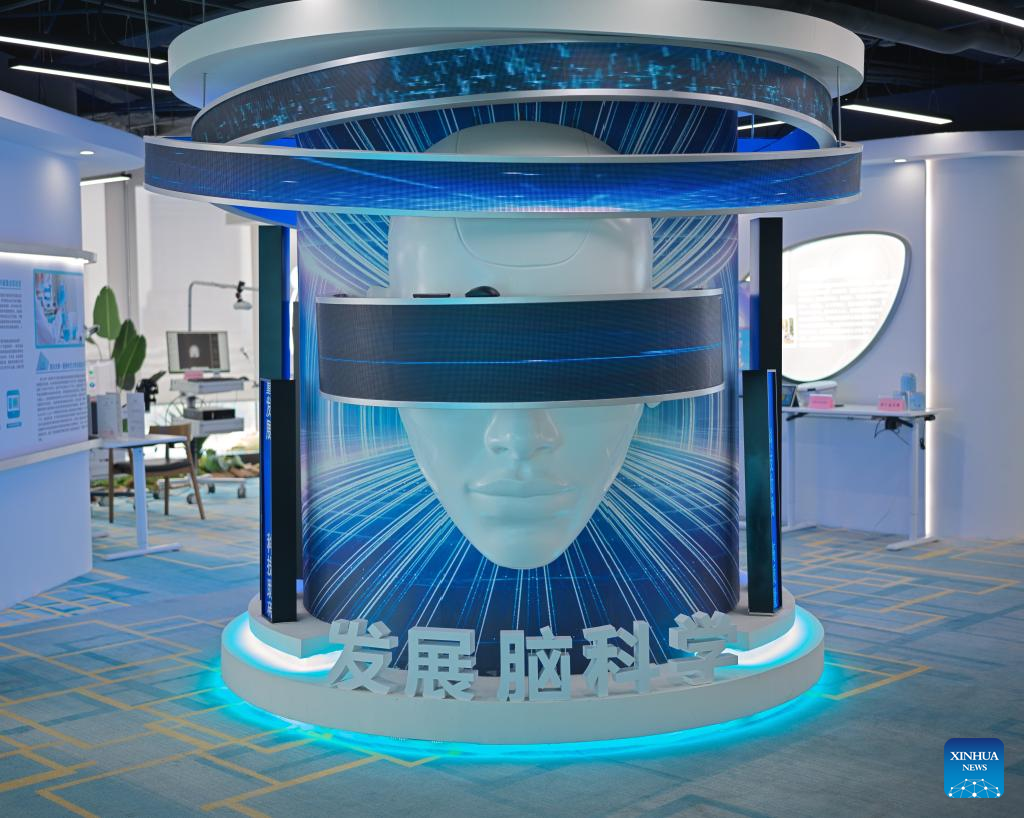
This photo taken on June 6, 2025 shows an interior view of Chengdu Xinnao Technology Co., Ltd. in Chengdu, southwest China’s Sichuan Province. (Xinhua/Xue Chen)
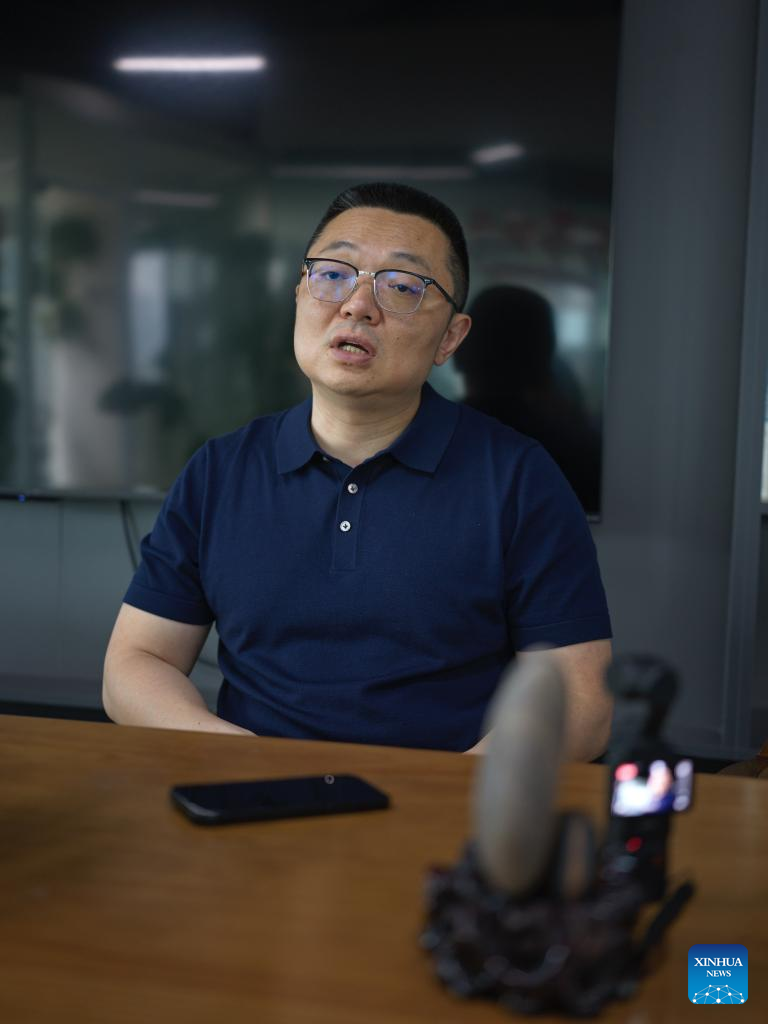
This photo taken on June 6, 2025 shows Feng Rui, founder of the high-tech company dedicated to harnessing brain-computer interface (BCI) technology for autism intervention, in Chengdu, southwest China’s Sichuan Province. (Xinhua/Xue Chen)

